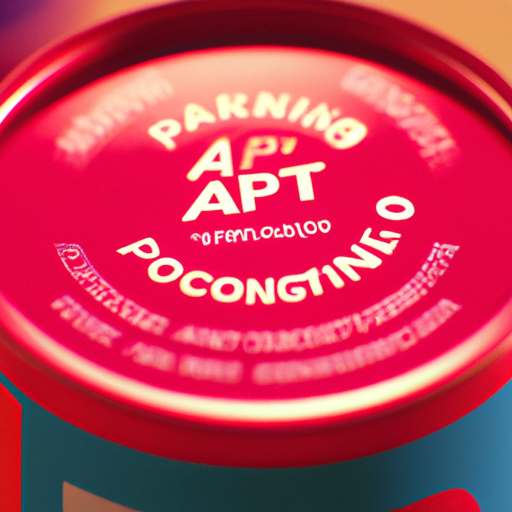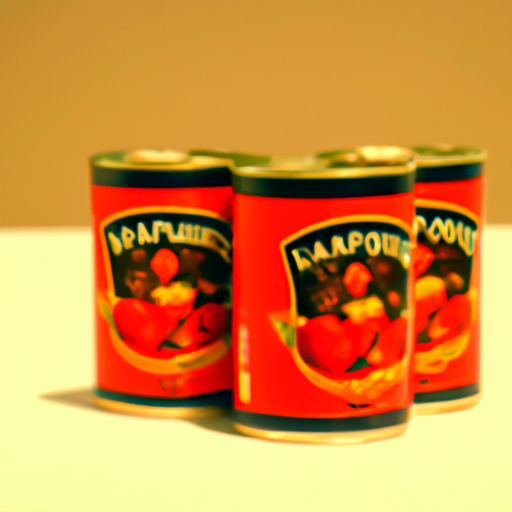
-
Table of Contents
- Packaging Graphics that Pop: Designing for Products
- The Power of Packaging Graphics
- Key Elements of Effective Packaging Graphics
- 1. Color
- 2. Typography
- 3. Imagery
- 4. Branding
- 5. Hierarchy of Information
- Case Studies: Packaging Graphics that Pop
- 1. Coca-Cola
- 2. Apple
- 3. Oreo
- Designing for Different Product Categories
- 1. Food and Beverages
- 2. Beauty and Personal Care
- 3. Electronics and Technology
- Summary
Packaging Graphics that Pop: Designing for Products

When it comes to product packaging, the design plays a crucial role in attracting consumers and influencing their purchasing decisions. Packaging graphics have the power to make a product stand out on the shelves, communicate its value, and create a lasting impression. In this article, we will explore the importance of designing packaging graphics that pop and provide valuable insights on how to create visually appealing and effective packaging designs.
The Power of Packaging Graphics
Packaging graphics are more than just pretty pictures on a box. They serve as a visual representation of a brand and its products, conveying important information and creating an emotional connection with consumers. Here are some key reasons why packaging graphics are so powerful:
- First Impression: Packaging is often the first point of contact between a consumer and a product. Eye-catching graphics can grab attention and make a positive first impression, increasing the likelihood of a purchase.
- Brand Identity: Packaging graphics help establish and reinforce a brand’s identity. Consistent use of colors, fonts, and imagery can create a recognizable and memorable brand image.
- Product Differentiation: In a crowded marketplace, packaging graphics can help a product stand out from the competition. Unique and innovative designs can attract attention and make a product more memorable.
- Information Communication: Packaging graphics play a crucial role in communicating important information about a product, such as its features, benefits, and usage instructions. Clear and concise graphics can help consumers make informed purchasing decisions.
- Emotional Connection: Well-designed packaging graphics have the power to evoke emotions and create a connection with consumers. By appealing to their desires, aspirations, or values, packaging can create a sense of desire and urgency to purchase.
Key Elements of Effective Packaging Graphics
Creating packaging graphics that pop requires careful consideration of various elements. Here are some key elements to keep in mind when designing packaging graphics:
1. Color
Color is one of the most important elements of packaging graphics. It can evoke emotions, convey brand personality, and attract attention. Different colors have different psychological effects, so it’s important to choose colors that align with the brand and product. For example, vibrant and bold colors may be suitable for energy drinks, while pastel shades may work well for baby products.
2. Typography
The choice of typography can greatly impact the overall look and feel of packaging graphics. Fonts should be legible, reflect the brand’s personality, and be appropriate for the product category. Bold and playful fonts may be suitable for snacks or candies, while elegant and sophisticated fonts may be more appropriate for luxury products.
3. Imagery
Images and illustrations can add visual interest to packaging graphics and help convey the product’s features or benefits. High-quality and relevant imagery can create a strong visual impact and make a product more appealing. For example, a picture of a juicy fruit can make a fruit juice packaging more enticing.
4. Branding
Effective packaging graphics should prominently feature the brand’s logo and other branding elements. Consistency in branding across different products can help build brand recognition and loyalty. The placement and size of branding elements should be carefully considered to ensure they are easily visible and memorable.
5. Hierarchy of Information
When designing packaging graphics, it’s important to prioritize and organize the information hierarchy. The most important information, such as the product name or key benefits, should be easily readable and stand out. Less important information, such as ingredients or legal disclaimers, can be placed in smaller fonts or less prominent positions.
Case Studies: Packaging Graphics that Pop
Let’s take a look at some real-life examples of packaging graphics that have successfully captured attention and created a strong brand presence:
1. Coca-Cola
Coca-Cola is known for its iconic red and white packaging. The bold and vibrant colors, combined with the classic typography, create a strong visual impact. The brand’s logo is prominently displayed, ensuring instant recognition. Coca-Cola’s packaging graphics have become synonymous with happiness and refreshment, making it one of the most successful examples of effective packaging design.
2. Apple
Apple’s packaging graphics are minimalistic and sleek, reflecting the brand’s focus on simplicity and elegance. The use of clean lines, high-quality product images, and minimal text creates a sense of sophistication. Apple’s packaging graphics have become instantly recognizable and are often imitated by other brands in the tech industry.
3. Oreo
Oreo’s packaging graphics are playful and fun, appealing to both children and adults. The use of vibrant colors, bold typography, and mouth-watering product images create a sense of excitement and indulgence. Oreo’s packaging graphics have helped the brand become a household name and a favorite snack choice for many.
Designing for Different Product Categories
Effective packaging graphics should be tailored to the specific product category and target audience. Here are some examples of how packaging graphics can be designed for different product categories:
1. Food and Beverages
Food and beverage packaging graphics should be appetizing and visually appealing. High-quality product images, enticing food illustrations, and vibrant colors can make the packaging more attractive. Clear and concise information about ingredients, nutritional values, and usage instructions should also be included.
2. Beauty and Personal Care
Beauty and personal care products often rely on elegant and sophisticated packaging graphics. Soft colors, minimalist designs, and high-quality product images can create a sense of luxury and indulgence. Clear information about the product’s benefits, ingredients, and usage instructions should be provided.
3. Electronics and Technology
Electronics and technology products often require packaging graphics that convey innovation and cutting-edge technology. Clean lines, high-quality product images, and bold typography can create a sense of modernity and reliability. Key product features, specifications, and compatibility information should be clearly communicated.
Summary
Packaging graphics play a crucial role in attracting consumers and influencing their purchasing decisions. They serve as a visual representation of a brand and its products, creating a lasting impression. By considering elements such as color, typography, imagery, branding, and information hierarchy, designers can create packaging graphics that pop. Real-life examples, such as Coca-Cola, Apple, and Oreo, demonstrate the power of effective packaging design. Tailoring packaging graphics to specific product categories and target audiences further enhances their impact. By investing in well-designed packaging graphics, brands can differentiate themselves, create emotional connections with consumers, and ultimately drive sales.
